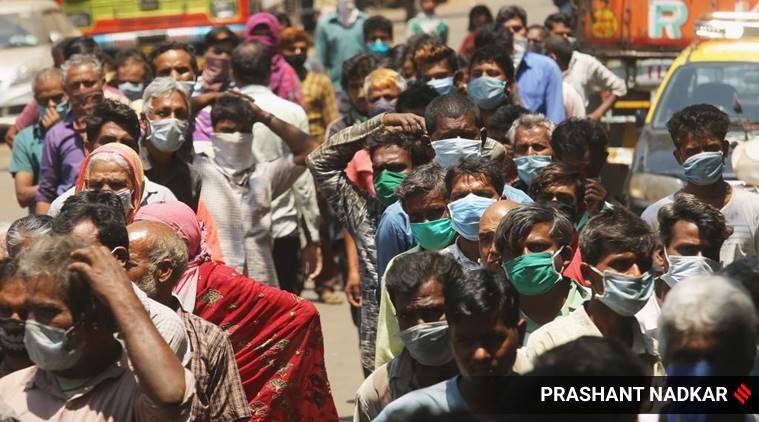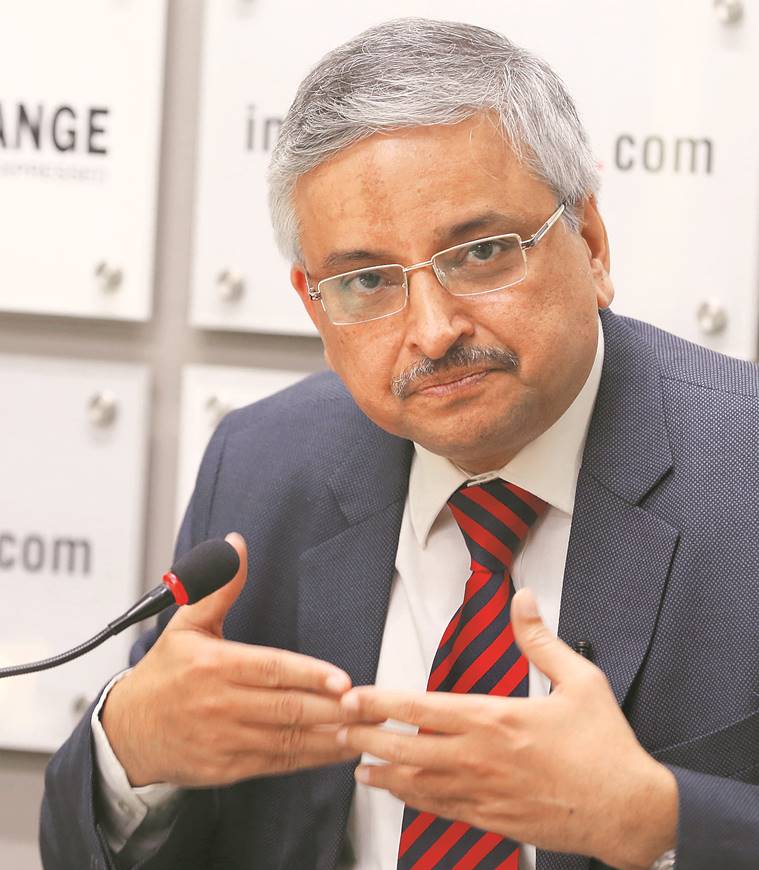Kaunain Sheriff M is an award-winning investigative journalist and the National Health Editor at The Indian Express. He is the author of Johnson & Johnson Files: The Indian Secrets of a Global Giant, an investigation into one of the world’s most powerful pharmaceutical companies. With over a decade of experience, Kaunain brings deep expertise in three areas of investigative journalism: law, health, and data. He currently leads The Indian Express newsroom’s in-depth coverage of health. His work has earned some of the most prestigious honours in journalism, including the Ramnath Goenka Award for Excellence in Journalism, the Society of Publishers in Asia (SOPA) Award, and the Mumbai Press Club’s Red Ink Award. Kaunain has also collaborated on major global investigations. He was part of the Implant Files project with the International Consortium of Investigative Journalists (ICIJ), which exposed malpractices in the medical device industry across the world. He also contributed to an international investigation that uncovered how a Chinese big-data firm was monitoring thousands of prominent Indian individuals and institutions in real time. Over the years, he has reported on several high-profile criminal trials, including the Hashimpura massacre, the 2G spectrum scam, and the coal block allocation case. Within The Indian Express, he has been honoured three times with the Indian Express Excellence Award for his investigations—on the anti-Sikh riots, the Vyapam exam scam, and the abuse of the National Security Act in Uttar Pradesh. ... Read More
Lockdown strains economy, but key to containing virus: AIIMS Director Randeep Guleria
In a detailed interview to The Indian Express in which he explained a range of issues from testing to India’s relatively low numbers, Dr Guleria was asked what his advice would be to the government on the next steps.
 Dr Guleria highlighted that “to some extent” community transmission will occur in all pandemics — and that it is “incorrect to say that we will never have community transmission”. (Express photo by Prashant Nadkar)
Dr Guleria highlighted that “to some extent” community transmission will occur in all pandemics — and that it is “incorrect to say that we will never have community transmission”. (Express photo by Prashant Nadkar)
EVEN if it’s causing severe strain in the economy, the national lockdown is a very significant strategy to contain the spread of the coronavirus in India. And a call on how long it should continue — and in what form — can be taken only after a close look at data from different states, said AIIMS Director and member of the high-level technical committee of Public Health Experts for COVID-19, Dr Randeep Guleria.
In a detailed interview to The Indian Express in which he explained a range of issues from testing to India’s relatively low numbers, Dr Guleria was asked what his advice would be to the government on the next steps.
“My issue is to start quickly looking at data. There are two or three questions there. One: how long should the lockdown continue? Two, should it be throughout the country or, (should) there there be a graded lifting of the lockdown in certain areas? That is dependent on the data that emerges in terms of the number of cases, hotspots, and areas in our country that are safe, are protected because of lockdown, and don’t have a significant number of cases. That data is important so that we can take a call on (these questions),” Dr Guleria said.
 ‘decision on how long lockdown stays depends on data from states’: Dr Randeep Guleria, AIIMS Director
‘decision on how long lockdown stays depends on data from states’: Dr Randeep Guleria, AIIMS Director
Asked about the low numbers, he said: “We are lucky that the number of cases has not skyrocketed. But at the same time, I don’t think we should sit back. We have to be very aggressive in trying to maintain this by containing the spread in a geographical area rather than allowing it to spread. We need active case finding, and maybe more testing in these areas.”
Dr Guleria said that at the country’s premier institution, AIIMS, the team of experts is currently looking at one key strategy to fight COVID-19: containment.
“What we are looking at is: containment, containment, containment. We have to contain in localised areas rather than have a widespread infection across the country. We have to upscale our health facilities. It is a time when the public sector and private sector need to come together. There are areas where the public sector may not have that good facilities in terms of ICU care and ventilatory support. And the private sector might be in a much better position to save lives in terms of ventilatory support. It is important for collating our health resources and working as a team for saving lives,” he said.
On community transmission, Dr Guleria highlighted that “to some extent” community transmission will occur in all pandemics — and that it is “incorrect to say that we will never have community transmission”.
“Even if you are able to prevent community transmission today, at some point in time, you will open up travel — at that time there will be some people who will come with the infection and carry it forward. It is not a question of whether we can forever prevent community transmission,” he said.
“To say that we will never have a community transmission will not be a correct statement. There will be some community transmission. As of now, the aim is that even if there is some degree of community spread, we contain it and localise it to a certain area, and focus our resources in terms of providing good healthcare and not allowing it to spread to other areas.”
Asked about the economic cost of the lockdown, Dr Guleria said that while India is in an advantageous position given its young demographic, there are red flags.
“…Although we are a young population, many of us have co-morbidities. India is the diabetes capital of the world. Our population, which has heart disease, gets it 10 years earlier than those in the West. Therefore, the strategy for having a lockdown is essential so that we are able to contain the widespread infection and have time to improve our health resources. To my mind, the economic cost of having a huge outbreak is much more in terms of both the cost and the mortality than what we will lose during in the lockdown in economic terms. That is why lockdown makes sense, even though it is causing a lot of strain on the country’s economy,” he said.



- 01
- 02
- 03
- 04
- 05





























